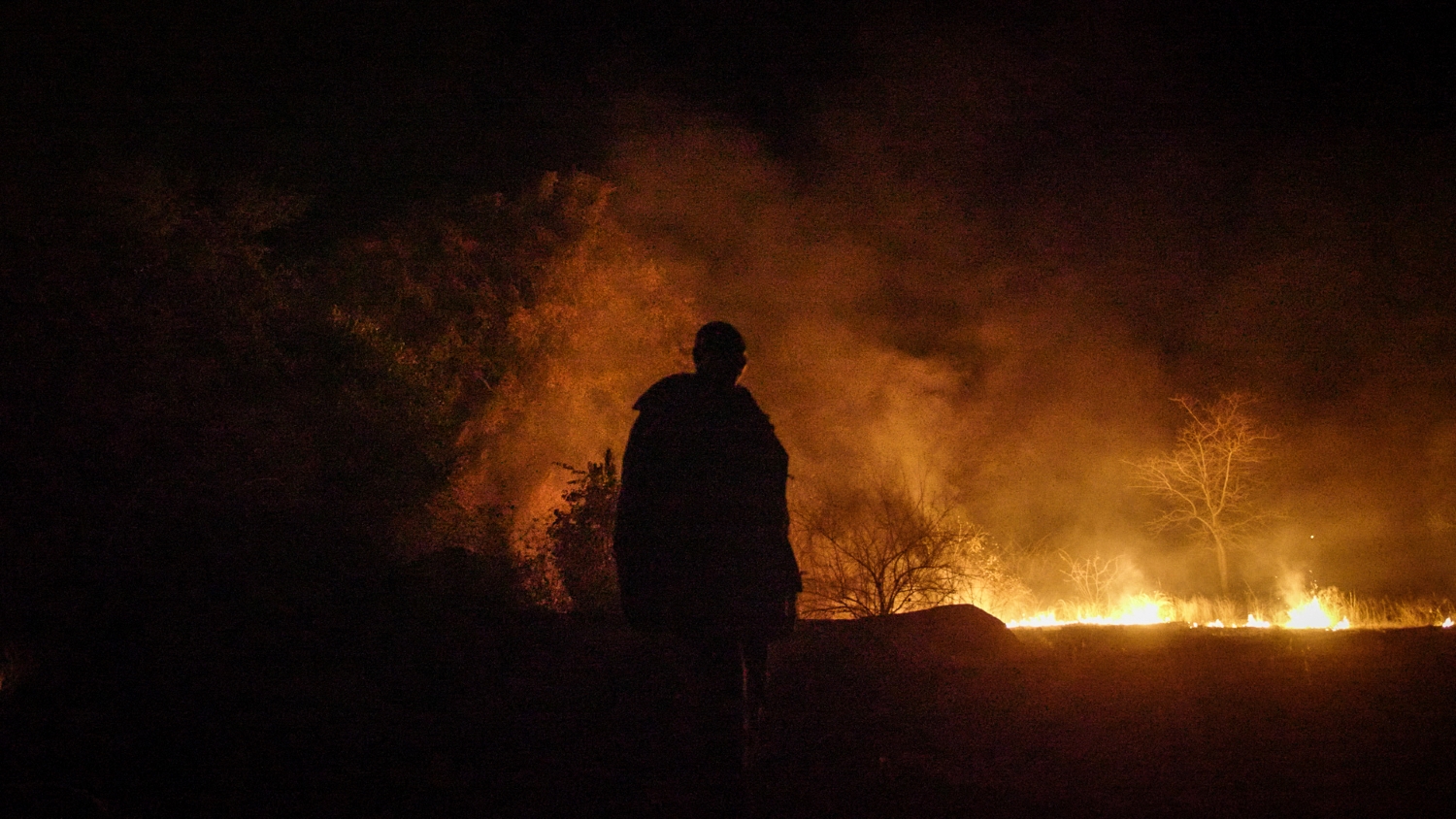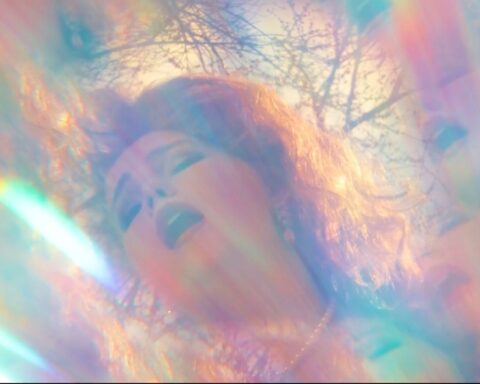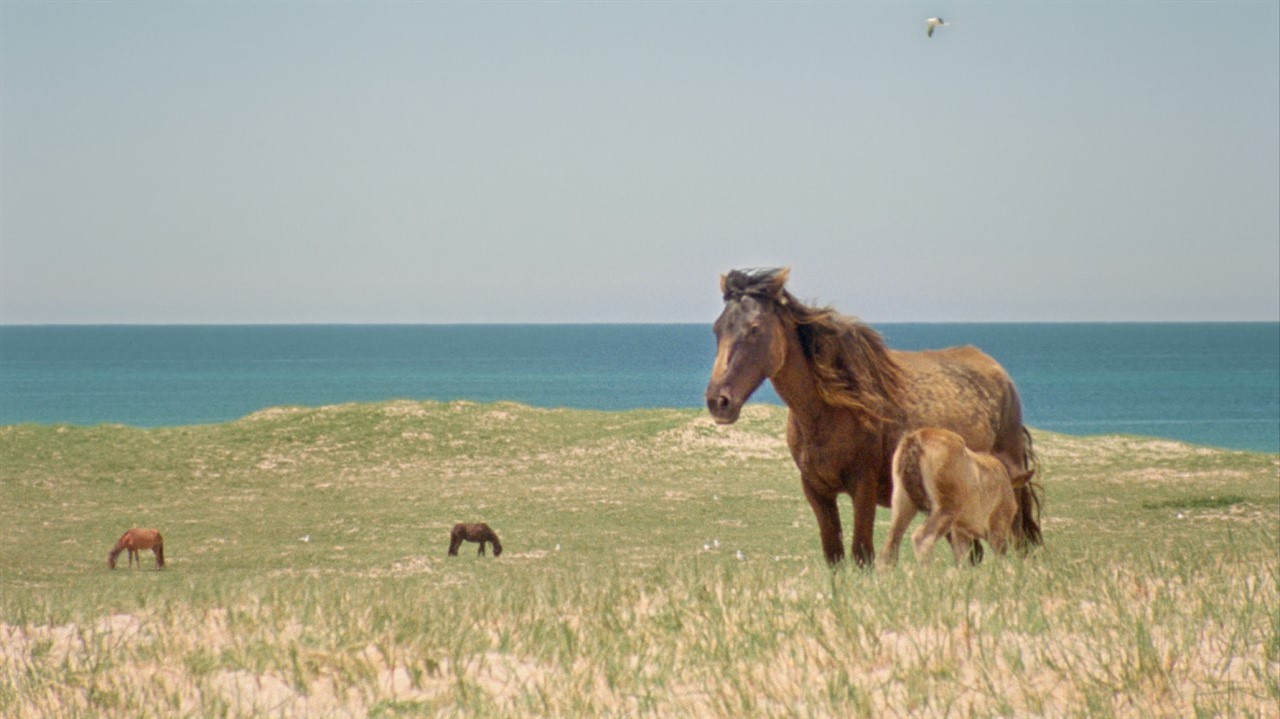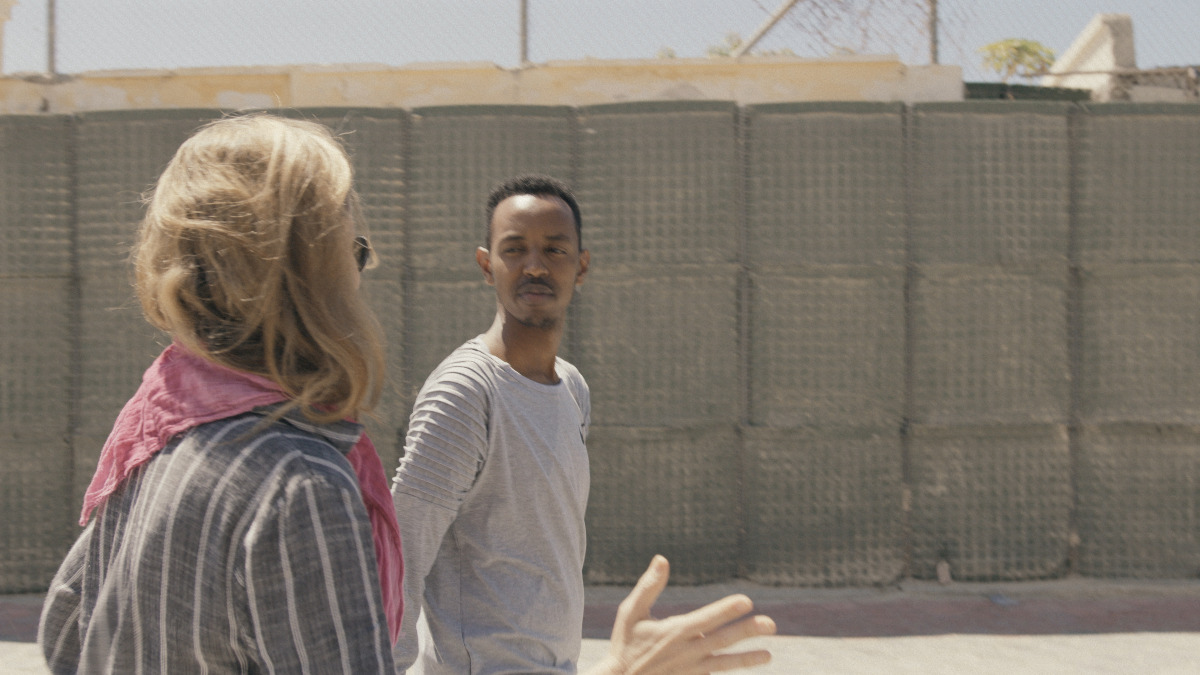35 projects will receive funding from the Sundance Institute Documentary Fund. The announcement comes as the Sundance Institute’s Documentary Film Program celebrates its 20th anniversary. This year’s slate of recipients demonstrates the Fund’s international reach, as the projects represent 31 different counties, drawn from a pool in which 57% of submissions came from outside the USA. The fund awards projects in the stages of development, production, post-production, and impact.
“As we celebrate the DFP’s 20th anniversary, it’s an exceptional achievement that Sundance has been able to provide documentary filmmakers robust and sustained financial support, from development through post-production, for two decades,” said Carrie Lozano, Director of the Sundance Institute’s Documentary Film Program, in a statement. “Thanks to our incredible funders, supporters, staff, and external reviewers, the Documentary Fund has been able to realize its top priorities during a tumultuous time: supporting underrepresented stories, directors and producers; providing much needed resources to urgent international projects; and elevating human rights and social, civic and environmental justice, all while foregrounding bold and artistic approaches. I am constantly amazed by the breadth and depth of our grantees.” Grants are made possible by the Open Society Foundations, the John D. and Catherine T. MacArthur Foundation, Gucci, the Kendeda Fund, and Luminate.
“With growing opposition to human rights and freedom of speech around the world, it is imperative now more than ever that we continue to provide resources to independent artists at all stages of their career, uplifting marginalized narratives and perspectives from development to impact,” added Paola Mottura, Documentary Film Fund Director. “Our grantees are telling culturally significant stories that will help shift global narratives and effect real change, and it is a privilege to bring these independent stories into the fabric of the Sundance community.”
Amplifying Underrepresented Voices
This year’s roster of grantees features a range of artists from diverse backgrounds. The institute notes that all 14 productions from the USA credit at least one director or producer who identifies as Black, Indigenous, or a Person of Colour. On the international side, the DFP recognizes projects from regions where filmmaking is traditionally under-funded and where artists face considerable risk making a documentary due to concerns over freedom over expression. The 2022 list also reflects a commitment towards stories of reconciliation and land reclamation with two of the US projects featuring Indigenous artists as key creatives.
New this round, the Sundance Institute and the Gucci Fund combined to bolster underrepresented voices through the Sundance Institute | Gucci Fund. Projects receiving support through this initiative are Matabeleland, Matininó, and Queendom.
Canadian Co-Productions
On the Canadian side, the Fund awards three co-productions. Among them is Matabeleland directed by Nyasha Kadandara and produced by Sam Soko and Bob Moore. The latter two previously collaborated on the Sundance prizewinner Softie. Matabeleland is a portrait of a truck driver who joins a cult amid desperate circumstances.
The Palestinian-Canadian co-production Theft of Fire, meanwhile, reunites director Amer Shomali and producer Ina Fichman following their acclaimed 2014 doc The Wanted 18. Like The Wanted 18, Theft of Fire is a hybrid work that explores the erasure of Palestinian history. Rashid Abdelhamid also serves as producer. Fichman was one of the producers for Fire of Love, which was the opening night selection of the US Documentary Competition at the Sundance Film Festival this year.
The history of the residential school system is the subject of an untitled documentary directed by Emily Kassie, and Julian Brave NoiseCat. Kassie serves as producer along with Kellen Quinn. The Canadian-American co-production examines personal stories of the lingering effects of the residential schools, drawing upon testimonies of survivors and the voices lost to unmarked graves.
Brett Story and Stephen Maing’s untitled labour union documentary, which won the CMF-Hot Docs Forum Canadian Pitch Prize at Hot Docs earlier this year, is also among the Fund’s recipients. The film is produced by Samantha Curley and Mars Verrone.
The full list of this year’s Sundance Documentary Fund recipients is as follows.
(All synopses courtesy of Sundance.)
DEVELOPMENT
Flying Cows (Armenia, The Netherlands)
Directors: Vahagn Khachatryan, Aren Malakyan
Producers: Jia Zhao, Vahagn Khachatryan, Kamee Abrahamyan
Every month cows are shipped from Armenia to Iran on cargo planes. As war approaches, people leave their lands behind and follow the path of their herds.
Imago (France, Belgium, Georgia)
Director: Déni Oumar Pitsaev
Producer: Alexandra Mélot
I have been offered land in Pankisi, Georgia, a valley set against the Causasus Mountains on the other side of Chechnya, the country where I was born. Although I am an exile, I contemplate building a house in this secluded region, dwelled by Chechen descendants but also known as “the Jihadists’ valley”. How can I inhabit such a place? How to bond with the members of my clan whom I don’t know yet? How can I assert my identity among them?
OAKLEAD (U.S.A.)
Director: Alex J. Bledsoe
Producer: Alex J. Bledsoe
In Oakland, California, families fight to protect their children from lead poisoning in their own homes and schools, confronting over a century of environmental racism. Supported by the Sundance Institute | Kendeda Fund
The Two Mountains Weighing Down My Chest (Germany, China)
Director: Viv Li
Producers: Daniela Dieterich, Erik Winker
Raised as a tomboy in China, Viv now lives in Berlin and is experiencing an identity struggle she didn’t know existed. Following her gender, sexual and artistic explorations, the film takes a witty yet sharp look on how different cultures and societies affect the way we are.
VINTAGE OR VIOLENCE (Uganda, South Africa)
Director: Nikissi Serumaga-Jamo
Producer: Lesedi Oluko Moche
Uganda is a dumping ground for fast-fashion – 80% of its clothing is second-hand from the global north. Bobby returns home, from Berlin, to make a local streetwear brand. His obstacles reveal the human impact of clothing waste as he finds new ways to advocate for himself, industry and future.
PRODUCTION
Concrete Land (Jordan)
Director: Asmahan Bkerat
Producer: Sahar Yousefi
Concrete Land is an intimate look at the lives of a nomadic Bedouin family in its struggle to hold on to its traditional life under the pressures of urbanization. Their only wish as a family is to stay together with their loyal yet eccentric pet sheep Badrya firmly by their side.
For Venida, For Kalief (U.S.A.)
Director: Sisa Bueno
Producer: Sisa Bueno
A late mother’s poetry echoes a movement for criminal justice reform for her son in For Venida, For Kalief. This lyrical film is an intentional departure from current storytelling approaches, and will instead focus on personhood to inspire us to reimagine a new kind of legacy for Kalief Browder.
Here, the Silence is Heard (Chile)
Directors: Gabriela Pena, Picho García
Producers: Gabriela Pena, Picho García
After returning to Chile at the old house that her family abandoned in exile after escaping from dictatorship and a death sentence, Gabriela takes care of her grandparents, while ghosts of intergenerational wounds yet to be understood and healed appear at night.
In Your Shadow (The Netherlands, South Africa, France)
Directors: Thabi Mooi, Tom Fassaert
Producers: Renko Douze, Hasse van Nunen
When Thabi takes her estranged father on a journey to reconstruct his hidden past as an ANC freedom fighter, she discovers that there’s more to his lifelong silence than only his trauma. Together they face an evil dilemma: straying true to the freedom movement or to each other.
Matabeleland (Zimbabwe, Botswana, Kenya, Canada)
Director: Nyasha Kadandara
Producers: Sam Soko, Bob Moore
Chris – a struggling migrant truck driver must choose between being exploited in a foreign land or returning to the country that killed his father. Out of desperation, he joins a religious cult to find an answer. Supported by the Sundance Institute | Gucci Fund
Matininó (U.S.A.)
Director: Gabriela Díaz Arp
Producers: Karla Claudio Betancourt, Tatiana Monge Herrera
Matininó tells the story of a multi-generational family of Puerto Rican women transforming their experience with domestic violence into a science-fiction film. Supported by the Sundance Institute | Gucci Fund
Night Fight (U.S.A.)
Director: Khary Saeed Jones
Producers: Khary Saeed Jones, Kendra Taira Field
Night Fight is a hybrid documentary—nonfiction wrapped in fiction—which charts a week in the life of a Black man attempting to step out of the long shadow cast by an act of racial violence perpetrated against him, as a nation seizes and convulses in response to the COVID-19 pandemic, counts down to the most consequential election in its history, and bears witness to the police killing of George Floyd.
Por Arte De Magia / Like Magic (Colombia)
Director: Melissa Saavedra-Gil
Producer: Maritza Blanco Ruano
After many years, I return to the city where I was born, where I hope to evoke an encounter with childhood and orphanhood. In a journey guided by the voices and gazes of the girl I was and the adult I am now, I delve into the murder of my parents, along with memories and inventions that gave rise to a universe of their own and that now, through autofiction, I turn into poetry.
Queendom (U.S.A., France)
Director: Agniia Galdanova
Producers: Igor Myakotin, Agniia Galdanova
Gena, a queer artist from a small town in Russia, dresses in otherworldly costumes made from junk and tape, and protests the government on the streets of Moscow. She stages radical performances in public that become a new form of art and activism – and put her life in danger. Supported by the Sundance Institute | Gucci Fund
Theft of Fire (Palestine, Canada)
Director: Amer Shomali
Producers: Ina Fichman, Rashid Abdelhamid
In the early 1980s, a lonely Palestinian museum curator hatches a daring plot to break into a secret Israeli prison and steal back a trove of looted antiquities from legendary general Moshe Dayan. A hybrid documentary that explores how history has been used as a weapon to erase Palestinian history.
The Vanishing (Senegal, France, Switzerland, Denmark)
Director: Rama Thiaw
Producers: Rama Thiaw, Yanis Gaye, Jean-Laurent Csnidis, Vadim Jendreyko, Marie Schmidt Olesen
One evening in 2012, my mother, Mariama, vanished. For half a century, she lived a stormy life, politically embedded in colonialism, racism and misogyny in both Africa and Europe. With my camera, I’m going to track prints and threads she left behind; to retrace in The Vanishing, the dazzle and distress of this contemporary Senegalese woman.
Untitled Jewish Abortion Doc (U.S.A.)
Director: Paula Eiselt
Producer: Darcy McKinnon
Inspired by the lawsuits filed in Florida challenging the state’s abortion ban on the basis of religious freedom, Untitled Jewish Abortion Doc is a short documentary about the national Jewish response to the Dobbs decision woven through the lived experiences of impacted Jewish women and the various lawsuits currently being launched by Rabbis, Jewish organizations and interfaith leaders to challenge the overturning of Roe state by state. Through the lens of maintaining the separation between church and state, these nation-wide efforts are predicated on ultimately protecting religious freedom – and democracy – for all.
Untitled Kenyan Politics Project (Kenya)
Directors: Christopher King, Maia Lekow
Producers: Maia Lekow, Christopher King
At a moment of historical transformation for Kenya’s ancient Lamu archipelago, the race for Governor has become a battle of extremely high-stakes. Amidst waves of violent terror attacks, billion dollar infrastructure projects, ethnic tensions and an open hostility towards female leadership, the winner will set this sleepy historical fishing village onto a trajectory that could make or break the community forever. Supported by the Sundance Institute | Luminate Fund
Untitled Labor Union Documentary (U.S.A.)
Directors: Stephen Maing, Brett Story
Producers: Samantha Curley, Mars Verrone
An intimate portrait of the Amazon Labor Union (ALU), a group of current and former Amazon workers taking on one of the world’s largest and most powerful companies in the fight to unionize.
Untitled Residential School Documentary (Canada, U.S.A.)
Directors: Emily Kassie, Julian Brave NoiseCat
Producers: Emily Kassie, Kellen Quinn
A gripping investigation of unmarked graves at an Indian residential school unearths secrets below and above ground, igniting a reckoning in the lives of survivors and their descendants, including the film’s co-director.
POST-PRODUCTION
Delikado (U.S.A., Philippines, Australia)
Director: Karl Malakunas
Producers: Michael Collins, Marty Syjuco, Kara Magsanoc-Alikpala
Three environmental crusaders confront betrayal and murder as they battle to save an island paradise famed as the Philippines ‘last ecological frontier’. Supported by the Sundance Institute | Kendeda Fund
Fire Through Dry Grass (U.S.A.)
Directors: Alexis Neophytides, Andres “Jay” Molina
Producers: Jennilie Brewster, Alexis Neophytides
On a tiny island in NYC, a group of Black and brown disabled artists fight COVID-19 and the city to protect the lives of 500 vulnerable nursing home residents.
Lakota Nation vs. United States (U.S.A.)
Directors: Jesse Short Bull, Laura Tomaselli
Producers: Benjamin Hedin, Phil Pinto
Lakota Nation vs. the United States chronicles the Lakota Indians’ quest to reclaim the Black Hills, sacred land that was stolen in violation of treaty agreements. A searing, timely portrait of resistance, the film explores the ways America has ignored its debt to Indigenous communities, and ponders what might be done today to repair the wrongs of the past.
Mai American (U.S.A.)
Director: Kevin Truong
Producer: Kevin Truong
A 70-year-old Vietnamese American refugee living in Oregon writes down her personal history, indelibly shaped by the War in Vietnam. As she shares her story with her filmmaker son, they begin separate but parallel journeys navigating the space between healing and confronting the traumas of their past.
Rejeito (Brazil, U.S.A.)
Director: Pedro de Filippis
Producers: Leonardo Mecchi, Bronte Stahl, Tarsila Nakmura
After the largest mining dam breaks in history, further dam collapses threaten millions in Brazil. A state counselor confronts the modus operandi of the government, while dam refugees resist the abuses of the mining companies in their threatened communities. Supported by the Sundance Institute | Luminate Fund
Stronger Together (Mexico)
Director: Tania Claudia Castillo
Producers: Gabriela Gavica, Carlos Hernández
A documentary that depicts the rise of the Mexican feminist movement to legalize abortion and combat the growing wave of violence against women. Supported by the Sundance Institute | Luminate Fund
Testament (Kenya, U.S.A., Brazil)
Directors: Meena Nanji, Zippy Kimundu
Producers: Meena Nanji, Zippy Kimundu, Eliane Ferreira
A Kenyan woman’s search for her father’s remains becomes an investigation into British colonial atrocities including concentration camps and land theft that left hundreds of thousands of Kenyans destitute. As her mission expands, she transforms into a powerful advocate championing justice and land resettlement for those dispossessed. Supported by the Sundance Institute | Luminate Fund
The Untitled Baltimore Documentary Project (U.S.A.)
Director: Gabriel Francis Paz Goodenough
Producers: Dawne Langford, Gabriel Francis Paz Goodenough
In Baltimore, young reform-minded leader Brandon Scott wins a high-stakes election for mayor during a national reckoning on race and policing. With unfettered access, cameras follow Scott into City Hall and throughout his first year in office, witnessing the obstacles he faces and his attempts to make lasting reform. Supported by the Sundance Institute | Kendeda Fund
Untitled (India, France, Norway)
Directors: Nishtha Jain, Akash Basumatari
Producers: Nishtha Jain, Valerie Montmartin, Torstein Grude Ruwê Yuxinawá
“For without farming, there could not be a single nation.”
XiXi (Taiwan, The Philippines, South Korea)
Director: Fan Wu
Producers: Fan Wu, Venice Atienza, Sona Jo
In my last summer in Europe after studies, I befriended XiXi, a Chinese improvisation artist. For a time, we were free from the ideologies we grew up in. Over years of correspondence across Eurasia, our friendship that was a window to freedom, evolved into a room where what was silenced found its voice, forcing us to face the vulnerability that comes with the autonomy we realize we have always possessed.
IMPACT
Black Mothers Love & Resist (U.S.A.)
Director: Débora Souza Silva
Producers: Débora Souza Silva, David Felix Sutcliffe, Adina Luo
Wanda Johnson and Angela Williams, mothers of young Black men victimized by police brutality, come together and build a network of community-led support, mutual aid, and healing in this documentary spanning Oakland’s Fruitvale to the American South.
Hollow Tree (U.S.A.)
Director: Kira Akerman
Producers: Monique Walton, Chachi Hauser
Hollow Tree is about three teenagers coming of age in their sinking homeplace of Louisiana. For the first time, they notice the Mississippi River’s engineering, stumps of cypress trees, and polluting refineries. Their different perspectives—as Indigenous, white, and Angolan young women—shape their story of the climate crisis. Supported by the Sundance Institute | Kendeda Fund
Razing Liberty Square (U.S.A.)
Director: Katja Esson
Producers: Katja Esson, Ann Bennett, Corinna Sager, Ronald Baez
Miami is ground-zero for sea-level-rise. When residents of the Liberty Square public-housing community learn about a $300 million revitalization project in 2015, they soon discover that this sudden interest comes from the fact that their neighborhood is located on the highest-and-driest ground in the city. Now they must prepare to fight a new form of racial injustice – Climate Gentrification. Supported by the Sundance Institute | Kendeda Fund
The Territory (Brazil, U.S.A., Denmark, U.K.)
Director: Alex Pritz
Producers: Gabriel Uchida, Will N. Miller, Lizzie Gillett, Sigrid Dyekjaer, Darren Aronofsky
The Territory provides an immersive look at the tireless fight of the Indigenous Uru-eu-wau-wau people against the encroaching deforestation brought by farmers and illegal settlers in the Brazilian Amazon. Supported by the Sundance Institute | Kendeda Fund. Premiered at the 2022 Sundance Film Festival where it received the World Cinema Documentary Special Jury Award: Documentary Craft and the Audience Award: World Cinema Documentary
Tigre Gente (U.S.A.)
Director: Elizabeth Unger
Producers: Elizabeth Unger, Joanna Natasegara
In Bolivia, a park ranger discovers a new, deadly jaguar trade galvanized by the Chinese black market. On the other side of the world, a young Hong Kong journalist weaves through her own community to understand what is driving the demand. Supported by the Sundance Institute | Kendeda Fund












